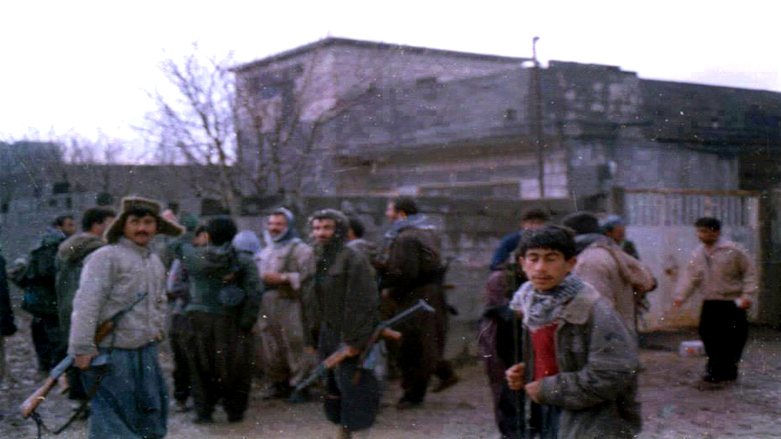PM Barzani stresses peaceful coexistence 3 decades after Kurdish uprising

ERBIL (Kurdistan 24) – On the 30th anniversary of Kurdish uprising against the former Ba’thist regime in Iraq, the Kurdistan Region’s prime minister stressed the importance of “peaceful coexistence, forgiveness, and humanitarianism,” according to a statement on Friday.
“We should always preserve and grow the high principles of uprising and coexistence, forgiveness, peace, and humanitarianism,” Prime Minister Masrour Barzani said on Friday, extending his “warmest congratulations” to the people of Kurdistan on the occasion.
On March 5, 1991, Kurdish people in the northern part of Iraq rose up against the Ba’thist regime, eventually ousting all its directorates and institutions from the Kurdish region.
The event is considered a pivotal moment in Kurdish history as it facilitated autonomy in northern Iraq, an objective that the Iraqi Kurds long fought for.
The uprising is considered one of the “the biggest achievements” of the Kurdish nation, which came into being as the result of the people’s unity and the rejection of tyranny and oppression, the premier said.
Supported by Peshmerga forces, the district of Raniya in Sulaimani Province was the first area to come under Kurdish control 10 days after the uprising began, which then sparked revolts in other areas until the cities and provinces in Kurdistan were freed.
Read More: The Kurdish Uprising, Part III: 25th Anniversary
A year after the revolt, the Kurdish people headed to the polls to cast their votes in the first democratic election which resulted in the formation of Kurdistan Regional Government (KRG).
The newly established government ruled the majority-Kurdish areas in the northern part of the country autonomously. Following the 2003 Ba’th regime collapse, the Kurdistan Region was constitutionally recognized as a federal region of Iraq.
The uprising came following the August 1991 invasion of Kuwait by the Iraqi dictator Saddam Hussien, whose forces were later expelled by an international and regional coalition.
Editing by Joanne Stocker-Kelly
